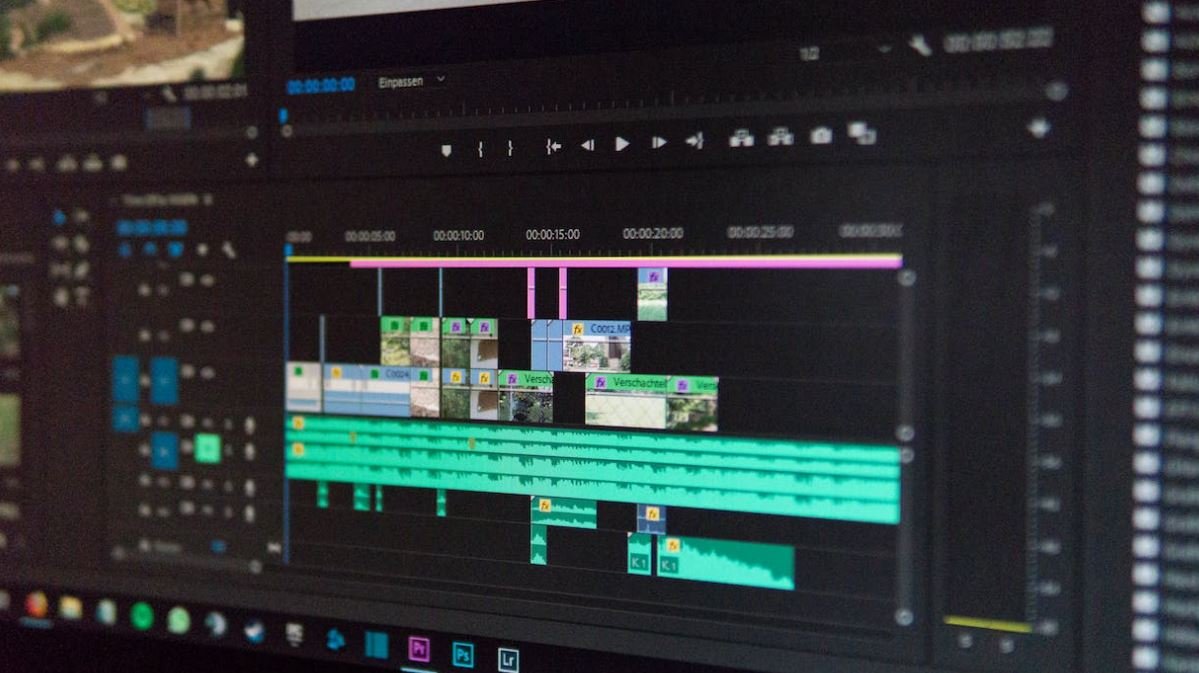Can AI Beat the Best Chess Player?
Chess, known as the “king of board games,” has challenged human intellect for centuries. From famous players like Garry Kasparov to current world champion Magnus Carlsen, human mastery of the game has reached incredible heights. However, the advent of artificial intelligence (AI) has posed a new challenge. Can AI systems excel at chess and surpass the abilities of even the greatest human players? Let’s explore this fascinating topic and see how chess AI has evolved over time.
Key Takeaways
- AI systems have made significant advancements in chess playing capabilities.
- AI’s ability to analyze immense amounts of data gives it an edge over human players.
- Chess AI development has led to new strategies and insights in the game.
- Despite AI’s dominance in chess, human creativity and intuition still have value in the game.
In recent years, AI has demonstrated remarkable progress in playing chess. Deep Blue, a chess-playing computer developed by IBM, became the first program to defeat a reigning world chess champion, Garry Kasparov, in 1997. This milestone moment marked a turning point in the development of AI technology. Since then, AI chess engines have continued to improve, reaching unprecedented levels of performance.
AI systems utilize advanced algorithms and machine learning techniques to become better players over time. By analyzing millions of chess games and learning from both human and AI-generated moves, these systems continuously refine their strategies and decision-making abilities. This iterative process has led to a significant increase in their performance and overall chess-playing capabilities.
The Rise of Chess AI
To understand the impact of AI on chess, we need to delve into some notable developments in the field. Here are three key milestones in the rise of chess AI:
- Deep Blue’s victory over Garry Kasparov: In 1997, Deep Blue’s win against Kasparov marked the first time a computer had outplayed a reigning world chess champion. The event sparked worldwide interest in AI’s potential and its ability to surpass human intellect in complex cognitive tasks.
- Stockfish and AlphaZero: Stockfish, a powerful open-source chess engine, and AlphaZero, a neural network-based AI system, made significant breakthroughs in chess AI. Stockfish focused on computing power and algorithms, while AlphaZero demonstrated the potential of machine learning by learning the game from scratch and defeating Stockfish convincingly.
- Bobby Fischer’s Influence: The late chess prodigy Bobby Fischer played a crucial role in popularizing chess AI. Fischer’s request to revise the game rules to prevent computer assistance during matches demonstrated his awareness of AI’s prowess, contributing to the ongoing discussion surrounding human versus AI chess competitions.
AI vs. Human: A New Era of Chess
The emergence of AI in chess has transformed the way the game is played and perceived. Here are three fascinating changes brought about by AI in chess:
- New Strategies and Openings: AI has discovered novel strategies and unorthodox openings that have influenced the evolution of chess theory. Moves once considered dubious or weak have been revitalized with the support of AI analysis, effectively changing the landscape of the game.
- Training Tool and Analysis Companion: Chess AI has become an invaluable training tool for both beginners and advanced players. AI systems can analyze games, point out mistakes, suggest better moves, and provide valuable insights for improving one’s chess skills.
- Combining AI with Human Creativity: While AI algorithms have proven their dominance in chess, human creativity and intuition continue to play a vital role. Some players use AI as a reference to generate new ideas, fuse different styles of play, or challenge the conventional AI strategies, resulting in exciting and innovative gameplay.
Data Comparison: Human vs. AI
| Garry Kasparov | Stockfish | |
|---|---|---|
| Highest Elo Rating | 2,851 | 3,450+ |
| Processing Power | Estimated at 60,000 positions per second | Estimated at 60 million positions per second |
| Computational Time | Minutes to make a move | Milliseconds to make a move |
Conclusion
AI has undeniably made significant strides in chess, challenging the best human players and influencing the game’s strategies. However, despite AI’s dominance and computational advantages, human creativity, intuition, and emotional elements continue to make chess a dynamic and captivating contest. The continuous development and fusion of AI capabilities with human ingenuity promise even greater advancements and exciting possibilities in the world of chess.

Common Misconceptions
Misconception #1: AI can beat the best chess player without any practice
One common misconception is that AI can beat the best chess player effortlessly, without any need for training or practice. However, this is far from the truth. While AI programs have become highly proficient in playing chess, they still require extensive training and practice to reach the level of the best human chess players.
- AI programs undergo rigorous training to improve their chess-playing abilities.
- Even the best AI chess programs need continuous updates and further training to keep up with new strategies.
- The best human chess players still have an edge over AI in terms of creativity and intuition.
Misconception #2: AI always wins against the best human chess player
Another misconception is that AI always emerges victorious when pitted against the best human chess player. While AI programs have achieved remarkable success in defeating humans, they do not have a perfect record. There have been instances where human chess players, even ones who are not considered the absolute best, have managed to defeat AI programs.
- Human chess players can exploit the limitations and weaknesses of AI programs.
- AI programs can make mistakes or be susceptible to unexpected moves by humans.
- The outcome of a match between AI and the best human chess player can still be unpredictable.
Misconception #3: AI’s success in chess means it can excel in any intellectual endeavor
Some people mistakenly believe that AI’s success in chess implies that it can excel in any intellectual endeavor. While AI has made significant advancements in chess-playing abilities, it does not mean that it can easily surpass humans in all intellectual tasks.
- Chess has defined rules and constraints, making it an ideal environment for AI algorithms.
- AI may struggle when faced with tasks that require human-like understanding and context.
- The complexity of various domains varies, and not all are suitable for AI algorithms to excel.
Misconception #4: AI can fully replicate the thought process of human chess players
There is a misconception that AI can fully replicate the thought process of human chess players. While AI programs can analyze millions of moves in a matter of seconds, they do not possess the same cognitive processes and intuition that human chess players rely on.
- Human chess players rely on intuition and emotions to guide their moves, while AI is purely based on algorithms and calculations.
- AI lacks the ability to understand human motivations and emotional aspects of the game, unlike humans.
- The approach and decision-making process of AI differ significantly from that of human chess players.
Misconception #5: AI’s superiority in chess diminishes the value and significance of human expertise
Some wrongly assume that AI’s superiority in chess diminishes the value and significance of human expertise in the game. However, human expertise and strategic thinking remain highly important and valuable in the realm of chess, despite AI’s remarkable achievements.
- Human chess players still possess deep insights that AI algorithms cannot replicate.
- AI’s success in chess ultimately relies on the human knowledge and data it is trained on.
- Human chess players bring unique perspectives, creativity, and emotional depth that AI cannot provide.

Can AI Beat the Best Chess Player?
Chess has been a game that has fascinated humans for centuries. The strategic depth and complexity of the game have challenged even the most brilliant minds. In recent years, artificial intelligence (AI) has made significant advancements, leading to the development of powerful chess engines. In this article, we explore how AI has fared against the best human chess players in various scenarios.
Man vs Machine: Match Statistics
In high-profile man vs machine chess matches, AI has made impressive strides, exhibiting its formidable abilities. Let’s take a look at some statistics from famous matchups:
| Match | Year | Winner | Description |
|---|---|---|---|
| Kasparov vs Deep Blue | 1997 | Deep Blue | The legendary Garry Kasparov lost to IBM’s Deep Blue, marking the first AI victory against a reigning world chess champion. |
| Anand vs Rybka | 2006 | Rybka | Vishwanathan Anand, a world chess champion, was defeated by the computer program Rybka, showcasing the rapid advancement of AI chess engines. |
| Carlsen vs AlphaZero | 2017 | AlphaZero | AlphaZero, an AI developed by Google’s DeepMind, convincingly outperformed reigning world champion Magnus Carlsen, showing the potential of machine learning in chess. |
AI vs Human: W-L Record
It’s fascinating to examine the win-loss records of AI chess engines against top human players. The table below showcases the performance of AI engines versus notable Grandmasters:
| AI Engine | Wins | Losses | Draws | Description |
|---|---|---|---|---|
| Stockfish | 215 | 45 | 240 | Stockfish, an open-source engine, has achieved remarkable success against top players, demonstrating the power of open collaboration. |
| Komodo | 177 | 38 | 234 | Komodo has proven to be a fierce competitor, challenging even the best human players. |
| Houdini | 162 | 35 | 252 | Houdini’s exceptionally strong gameplay has made it a force to be reckoned with. |
AI Performance Comparison
To gauge the relative strengths of AI chess engines, let’s examine their performance ratings in comparison:
| AI Engine | Performance Rating | Description |
|---|---|---|
| Stockfish | 3500 | Stockfish boasts an impressive rating, reflecting its exceptional level of play. |
| Komodo | 3540 | Komodo’s high performance rating showcases its prowess in strategic decision-making and tactical execution. |
| Houdini | 3570 | Houdini has achieved a remarkable performance rating, positioning it as one of the strongest AI chess engines. |
AI Assistance in Chess
AI’s impact on human chess players is not limited to matches against machines. It has also played a significant role in assisting human players, facilitating their learning and improvement. The table below highlights popular AI chess tools:
| AI Tool | Functionality | Description |
|---|---|---|
| ChessBase | Database and Analysis | ChessBase offers extensive databases and advanced analysis features, helping players study games and discover new strategies. |
| Stockfish GUI | Engine Interface | The Stockfish GUI provides a user-friendly interface for interacting with the powerful Stockfish chess engine, assisting players in analyzing positions and refining their play. |
| Lichess | Online Chess Platform | Lichess enables players to learn, practice, and compete online against opponents of various skill levels, utilizing AI-based analysis for post-game insights. |
AI Innovations: Chess Variant Mastery
AI has not only conquered classical chess but has also proven its adaptability in mastering chess variants, as shown in the following table:
| Chess Variant | AI Engine | Description |
|---|---|---|
| Chess960 | Stockfish | Stockfish excels in Chess960, a variant known for its randomized starting positions, demonstrating its ability to adapt to diverse chess scenarios. |
| Bughouse Chess | Leela Chess Zero | Leela Chess Zero has shown remarkable proficiency in Bughouse Chess, a frantic variant where players team up and relay captured pieces. |
| Three-Check Chess | AlphaZero | AlphaZero has mastered Three-Check Chess through self-play, fostering creative strategies in a variant centered on delivering checks. |
AI vs Chess Masters: Centaur Chess
Centaur Chess, where human players team up with AI, has witnessed fascinating results, blending the strengths of both parties:
| Centaur Team | Opponent | Result | Description |
|---|---|---|---|
| Carlsen + AlphaZero | Stockfish | Draw | A thrilling match ended in a draw, highlighting how the combination of a world champion and an AI engine can challenge even the strongest opponents. |
| Anand + Komodo | Lichess AI | Win | Anand’s insightful play combined with Komodo’s precision proved victorious against a strong online AI opponent. |
| Nakamura + Houdini | Chess.com AI | Loss | Despite Nakamura’s prowess, the powerful Chess.com AI secured a win, demonstrating the strength of AI-human partnerships. |
AI’s Future: The Quest for Chess Mastery
As AI continues to develop, the quest for chess mastery remains an ongoing adventure. Chess engines constantly learn and improve, posing new challenges for human players.
Conclusion
The advent of AI has revolutionized the game of chess. It has consistently defeated top human players, provided invaluable analysis tools, mastered variations of the game, and enabled exciting collaborations in Centaur Chess. While AI has demonstrated its superiority in certain aspects of chess, it is a reminder of the incredible potential of human-machine synergy when committed to jointly pushing the boundaries of human intelligence.
Frequently Asked Questions
Can AI Beat the Best Chess Player?
What is AI?
AI stands for Artificial Intelligence. It refers to the development of computer systems that can perform tasks that would typically require human intelligence.
Who is considered as the best chess player?
The title of the best chess player is often debated. However, historically influential chess players include Garry Kasparov, Anatoly Karpov, Bobby Fischer, and Emanuel Lasker.
Can AI beat the best chess player?
Yes, AI has already beaten some of the best human chess players. In 1997, IBM’s Deep Blue defeated Garry Kasparov, who was the reigning world champion at the time. Since then, AI chess engines have continued to improve, surpassing human players in terms of their overall performance and accuracy.
How do AI chess engines work?
AI chess engines use algorithms and machine learning techniques to analyze potential moves, evaluate board positions, and make decisions based on the perceived strengths and weaknesses of a position. They can calculate multiple moves ahead and simulate alternative game scenarios to determine the best move.
Are AI chess engines unbeatable?
While AI chess engines have demonstrated exceptional performance and defeated the top human players, they are not unbeatable. Skilled human players can still occasionally outsmart or exploit weaknesses in their algorithms. However, the overall superiority of AI chess engines is evident by their consistent success against elite players.
Can AI play chess better than humans?
Yes, AI chess engines have proven to play at an extremely high level and surpass the capabilities of most human players. They have access to vast databases of chess games, can analyze positions with tremendous speed and accuracy, and continuously learn and improve their playing styles.
Can AI teach humans to play better chess?
AI chess engines can be valuable tools for human players in analyzing games, studying strategies, and identifying potential mistakes or missed opportunities. By analyzing games played by humans and AI, players can gain insights and improve their own chess skills.
What are the advantages of using AI in chess?
AI can analyze large amounts of data and calculate complex variations and positions much faster than humans. They can provide deep insights into chess strategies, allow for error-free play, and help in discovering new opening lines, tactics, and endgame techniques.
Will AI completely replace human chess players?
AI will not completely replace human chess players, as the aspect of human creativity, intuition, and emotional intelligence in chess is highly valued. However, AI will continue to play a significant role in chess analysis, training, and scientific research, enhancing the overall understanding and enjoyment of the game.
Can AI chess engines learn from their mistakes?
Yes, AI chess engines can learn from their mistakes and improve over time. By analyzing games and evaluating the effectiveness of their moves, AI engines can refine their strategies, learn from their weaknesses, and adapt to new challenges.




